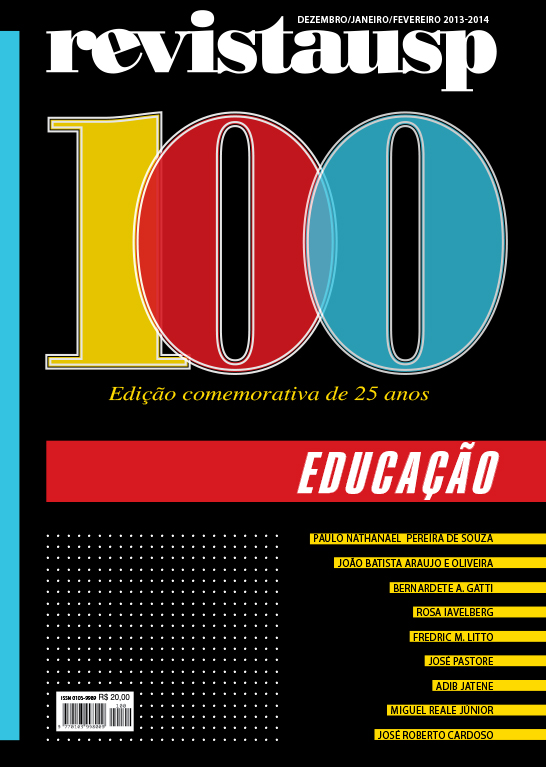O engenheiro de 2020 – Uma inovação possível
DOI:
https://doi.org/10.11606/issn.2316-9036.v0i100p97-108Keywords:
education in engineering, innovation, assessment, challenges to engineeringAbstract
The challenges faced by engineering schools, which are to be overcome by the end of this decade, are presented. The high rates of evasion and failure in disciplines are unparalleled in higher education; therefore, something must be done, since engineering, elected as the third millennium profession for being that which most adds quality of life for human beings, requires special care due to its importance to the country. In that regard, we suggest investments in a new line of research, engineering education, to support those actions, and present alternative models to make the engineering program more attractive. The creation of a playful space, combining engineering and arts and design, may be the most effective action for integrating the different types of engineering into other profession; and we understand that as a solution to speed up the flourishing of young students’ creative and innovative process.
Downloads
References
AL MEIDA FILHO, Naomar de; COUTINHO, Denise. “Nova Arquitetura Curricular na Universidade Brasileira”, in Ciência e Cultura, vol. 63, no 1, São Paulo, janeiro/2011. Disponível em: cienciaecultura.bvs.br/scielo.php?pid=S0009-67252011000100002&script=sci_arttext
BAIN, K. What the Best College Teachers Do. Harvard University Press, 2004.
BOWEN, W. G. Higher Education in the Digital. Ithaka, Age, Princeton University Press, 2013.
GA RRISON, D. Randy; VAUGHAN, Norman D. Blended Learning in Higher Education: Framework, Principles, and Guidelines. San Francisco, Jossey-Bass, 2008.
GI NSBERG, B. The Fall of the Faculty: the Rise of the All-administrative University and Why It Matters. New York, Oxford University Press, 2011.
NAE – National Academy of Engineering. Educating the Engineer of 2020. Adapting Engineering Education to the New Century. N. W., National Academy Press, 2005.
PE REIRA, E. M. A. “Educação Geral na Universidade de Harvard: a Atual Reforma Curricular”, in Ensino Superior Unicamp. Campinas, Unicamp, 2010.
SELINGO, J. J. College (Un) Bound: The Future of Higher Education and What It Means for Students. Boston, New Harvest, 2013.
THOMAS, D.; BROWN, J. S. A New Culture of Learning: Cultivate the Imagination for a World of Constant Change.E-book.
THORP, H.; GOLDSTEIN, B. Engines of Innovation: the Entrepreneurial University in the TwentyFirst Century. Chapel Hill, The University of North Carolina Press, 2010.
Downloads
Published
Issue
Section
License
Copyright (c) 2023 Revista USP

This work is licensed under a Creative Commons Attribution-NonCommercial-ShareAlike 4.0 International License.
|
Pertence à revista. Uma vez publicado o artigo, os direitos passam a ser da revista, sendo proibida a reprodução e a inclusão de trechos sem a permissão do editor. |


